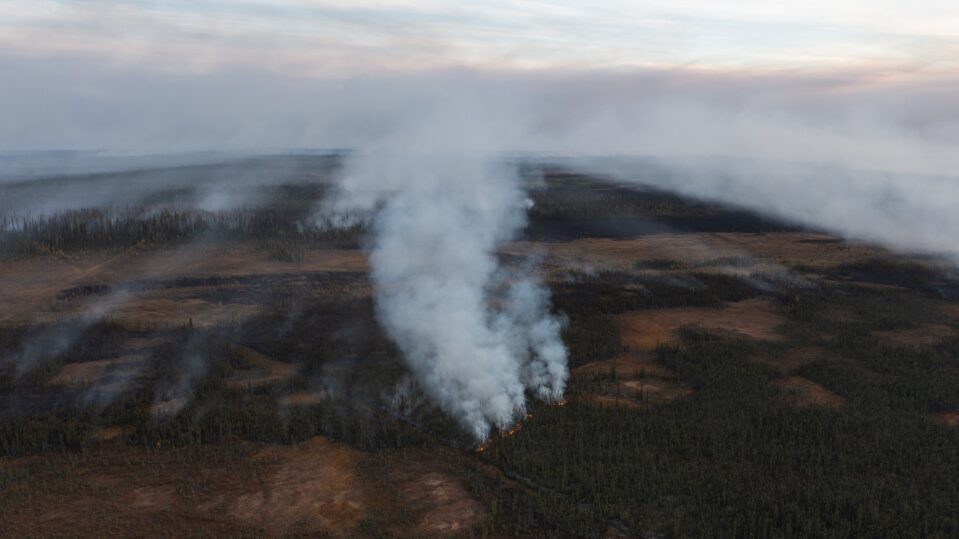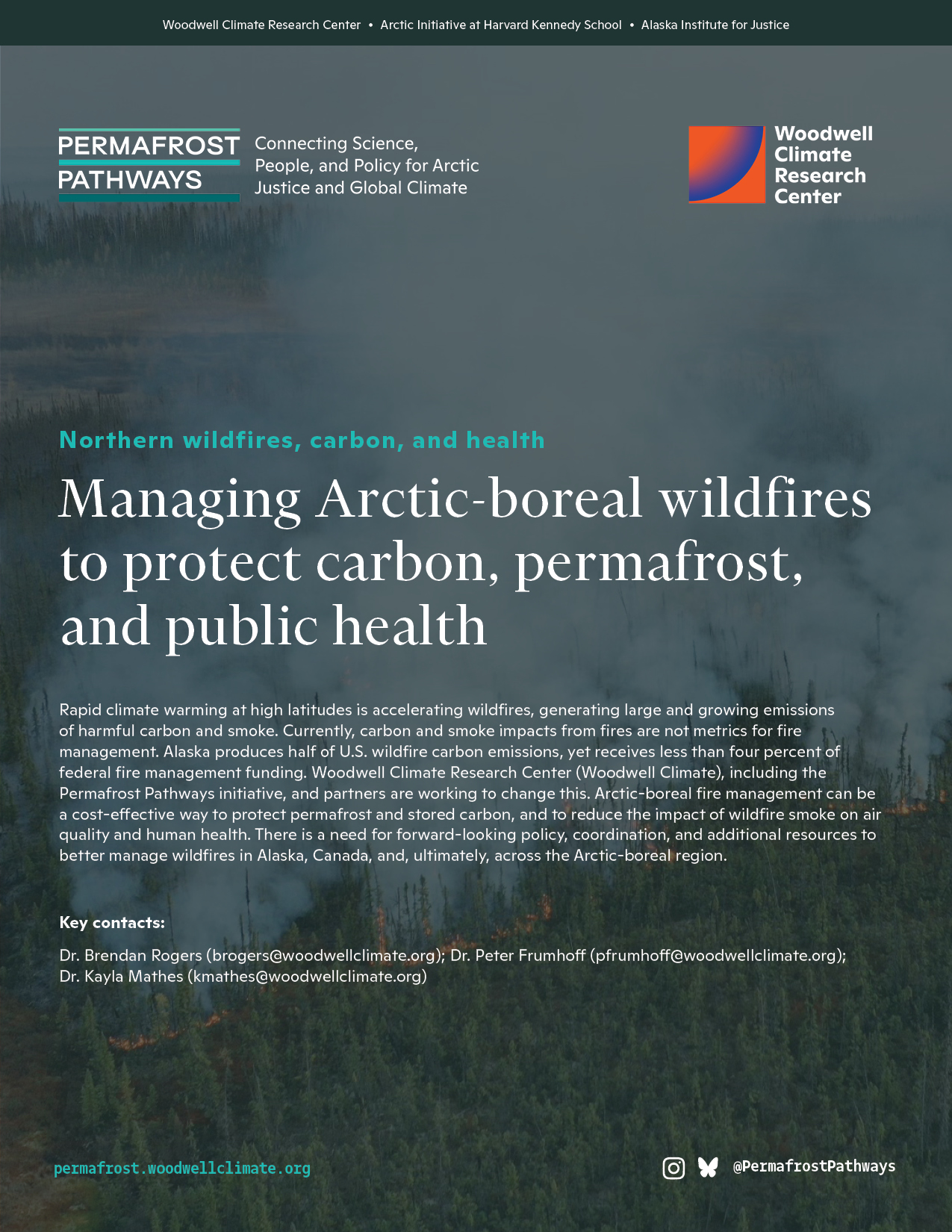Managing Arctic-boreal wildfires to protect carbon, permafrost, and public health

Associate Scientist, Woodwell Climate Research Center
Peter Frumhoff Ph.D.Senior Science Policy Advisor, Woodwell Climate Research Center
Kayla Mathes Ph.D.Postdoctoral Researcher, Woodwell Climate Research Center
Northern wildfires, climate, and health
Warming at high latitudes is accelerating wildfires, generating large amounts of carbon emissions that are not accounted for in climate projections or climate policy responses. Currently, carbon and smoke impacts from fires are not metrics for fire management. Woodwell Climate Research Center and partners in Alaska are working to change this. Arctic-boreal fire management can be a cost-effective way to help keep wildfires at historical levels, protect permafrost and stored carbon, and reduce the impact of wildfire smoke on air quality and human health. There is a need for forward-looking policy and additional resources to better manage wildfires in Alaska and, ultimately, across the Arctic-boreal region.
Go to top


